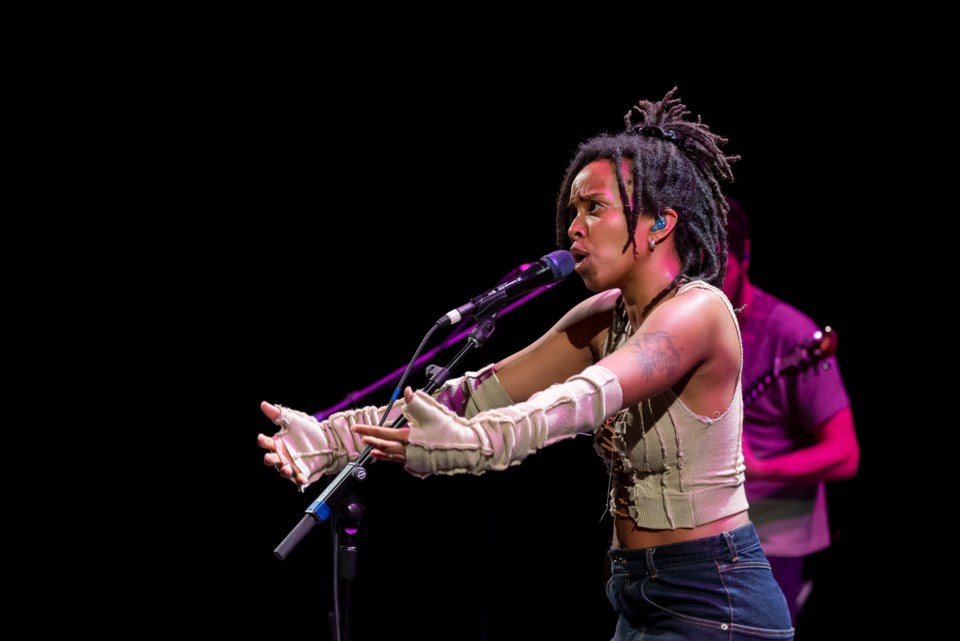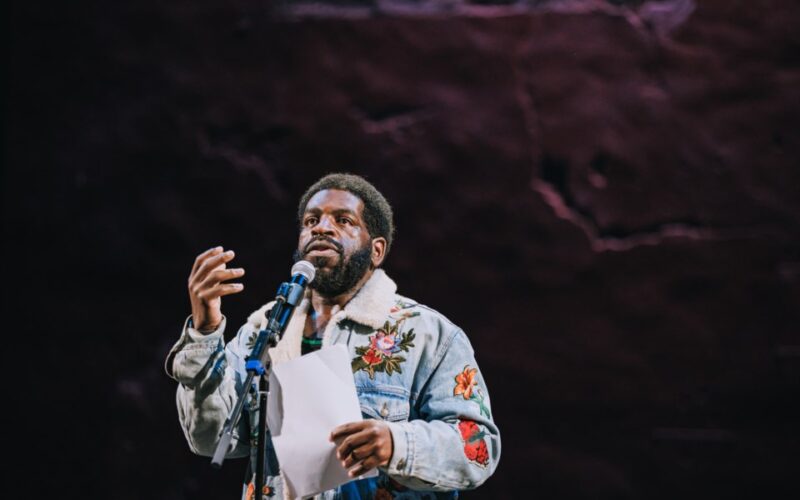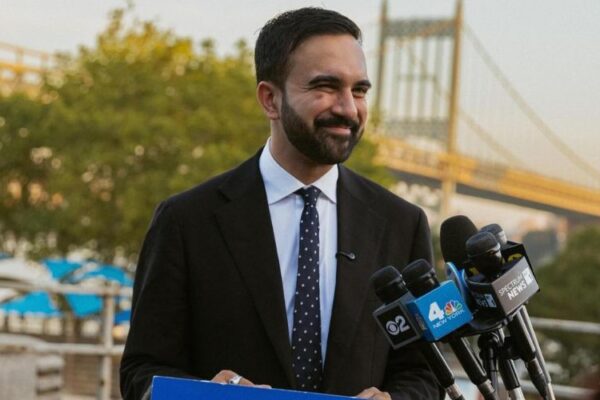Against the backdrop of the presidential election, poet Hanif Abdurraqib curated I Guess It Was My Destiny To Live So Long, a poetry, live music and storytelling event series that honored the legacy of poet June Jordan at the Brooklyn Academy of Music.
Part of BAM’s Next Wave 2024 & Emerging Visions series, Abdurraqib presented a slate of readings and performances from Nov. 4 – 8 as a respite from the toxicity of the election cycle.
Musicians and storytellers Jamila Woods, Tasha and McKinley Dixon took the stage on Nov. 6, the day after Donald Trump was declared the next president of the United States. Inside the venue, there was a sense of shock and disbelief that hung in the air. Yet, the performances on stage felt like a salve for the wounds many were licking.

Jamila Woods a poet, songwriter and performing artist from the South Side of Chicago, whose influences include James Baldwin, Nikki Giovanni and Sonia Sanchez, was bathed in sultry purple lighting and backed by a quartet of musicians as she soulfully sang songs from her discography. Bugs, a song from her album Water Made Us, was a highlight, which blends her soulful vocals with poetry.
She also performed SULA (Paperback) a 2020 single based on Toni Morrison’s 1974 novel of the same name, that honors both the author and her literary characters.
The Chicago artist Tasha Viets-VanLear, singularly known as Tasha, stunned in shocking blond hair while on guitar. She was backed by a four-piece band and breezed through a setlist of songs including Nina and Michigan that felt airy yet grounded on the large BAM Harvey stage.
Stones In The Water, a night of poetry with Abdurraqib, Anis Mojgani, Clint Smith and Sarah Kay on Nov. 7, was like a gathering in a friend’s basement. The poets’ banter with the audience and each other highlighted a connective fiber developed from previous shows and some of the poets’ Midwerstern upbringing.
Smith’s well-traveled terrain of fatherhood brought laughter and applause, with a performance that was a hybrid of poetry reading and stand-up comedy. Smith spoke about how he gets lauded for performing fatherly duties, while his wife rarely receives the same adulation for similar efforts.
“Just the other day I changed a dirty diaper and someone said praise Jesus,” he said.
Abdurraqib, BAM’s curator at large and a MacArthur Genius Fellow, read four new poems and then a passage from his 2024 memoir There’s Always This Year, a book about basketball, life and growing up in Columbus, Ohio, in the 1990s.

Mojgani, the 10th poet laureate of Oregon, spoke in a high-register voice that felt sincere when he read To The Sea, a poem centered on humanness and the curious nature of how people cherish what we dislike about ourselves.
Poet June Jordan’s work was the animal spirit for the curation, with the series taking the name of her 2005 posthumously published poem. Her legacy of resilience was embraced by a cross-generational constellation of artists that came together across lines of race, class, gender, age and geography.
The co-star of any live performance at BAM Harvey Theater is the stage itself. Its expansive minimalistic measure of exposed masonry, deconstruction and timeless ruin is a power-packed visual. Combined with the atmospheric lighting, the performances were presented in an environment not often afforded to poets and spoken word artists.
“Every place is unique…to bring poetry to BAM at this scale feels good,” Abdurraqib said. “Scott Woods brought experimental music and poetry, and to offer the cultural capital of BAM to artists who might not have access to it, feels special.”


















Leave a Reply
You must be logged in to post a comment.